Our Research
CSERGE undertakes policy-relevant interdisciplinary research on environmental issues.
Our mission is the investigation of relevant environmental issues for various circumstances and stakeholders across different temporal and spatial scales to pursuit the excellence in the conduct and presentation of research.
Research tools include economic analysis, environmental valuation, integrated environmental-economic modelling, risk analysis, life cycle assessment, and dynamic visualisation.
Read more about our research below.
Current projects
BOWIE
Benthic–Offshore Wind Interactions Evaluation (BOWIE) project is funded within the ECOWind Programme and will examine interactions between offshore wind farms and shelf sea ecosystems by incorporating interdependencies between habitat type, pressures relating to OW lifecycle, anthropogenic pressures and climate change.
Read more on the ECOWind website here (www.ecowind.uk)

MARBEFES
MARine Biodiversity and Ecosystem Functioning leading to Ecosystem Services MARBEFES project has received funding from the European Union’s Horizon Europe research and innovation programme under Grant Agreement no 101060937
Rean more on the official project website here.
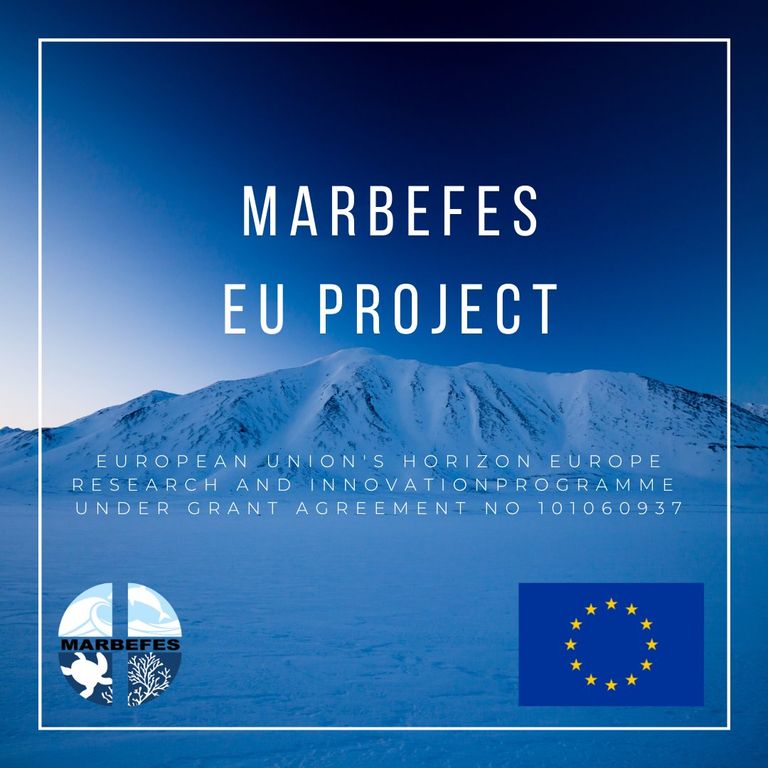
Pyramids of life
The ‘Pyramids of Life’ approach to a sustainable future captures and helps to communicate complex relationships between different species, human behaviours, and marine ecosystem functions.
Visit the Pyramids of Life website here

C-Floor
The NERC-funded C-FLOOR project will quantify how trawling alters sediment particulate organic carbon, inorganic carbon, nutrients, and air-sea exchanges. Combining extensive data archives, field campaigns, and modelling, C-FLOOR aims to inform sustainable fisheries management while supporting climate mitigation and net-zero goals. NERC Reference : NE/Z503782/1.
See more about the project here
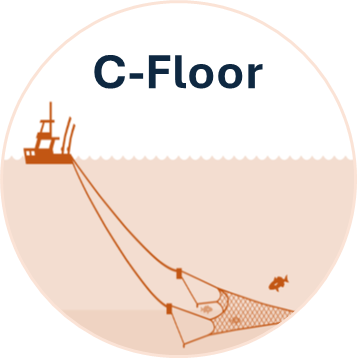
JRC Marine Accounts
Marine ecosystems provide numerous services and benefits to the world population. The European and global policy context have highlighted the relevant link between economy and environment in several technical and legislative tools. Recently, the United Nations System of Environmental-Economic Accounting Ecosystem Accounting (SEEA EA) has been adopted as a standard to guide and measure the contribution of the environment to the economy targeting specific accounts that reflects the role of ecosystems and their services in a consistent and comprehensive way (UN, 2021). In this project, CSERGE collaborated with the European Joint Research Centre to develop a case study application of ecosystem accounting for seagrass ecosystem in the Mediterranean Sea.
Read more here
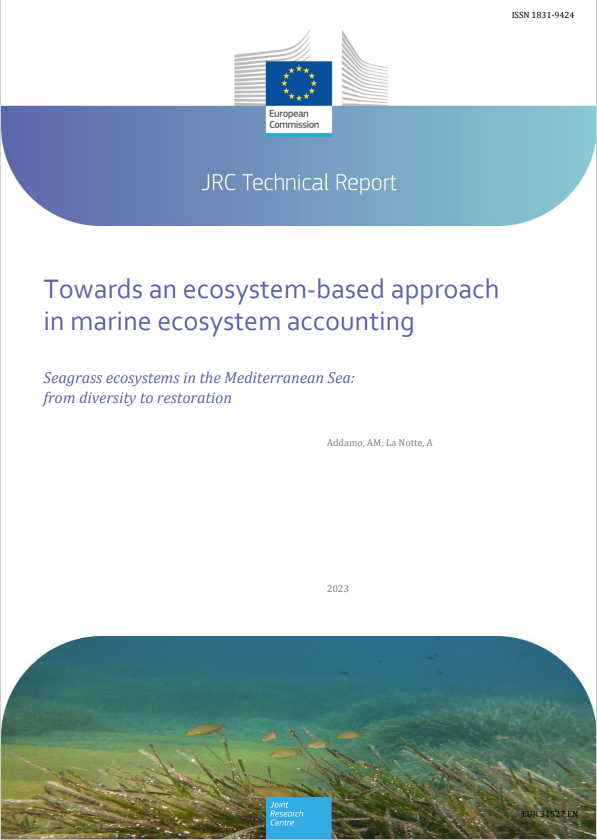
Ocean Citizen
CSERGE team members are collaborating with a multi disciplinary team to strenghten our knowledge on benefits and challanges of marine restoration initiatives.
To promote biodiversity, ecosystem functioning, and to enhance carbon sequestration, Ocean Citizen will implement and scale up an advanced regeneration programme that joins ecological perspectives with societal commitment, providing clear economic benefits and improving resilience of the local communities.
Learn more here
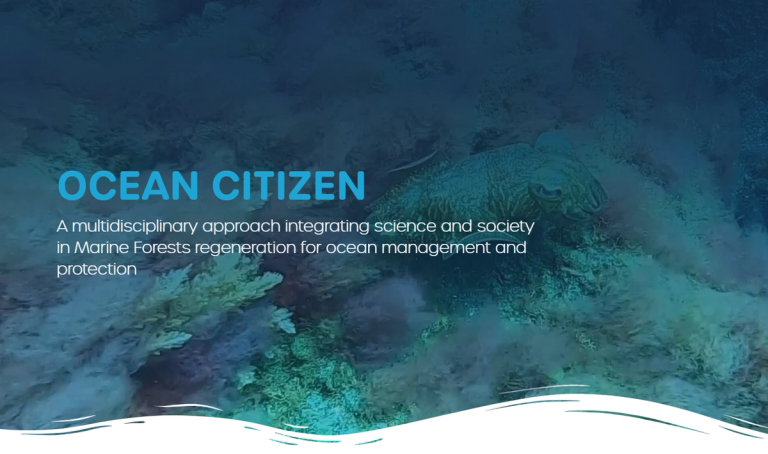
Marine Natural Capital Ecosystem Assessment (mNCEA)
CSERGE, in collaboration with Cefas, has developed a choice experiment case study on offshore wind development.
This project will deliver policy-relevant insights on the general public's views regarding offshore wind farm development in the UK, and the various environmental impacts, both positive and negative, that this can have on marine ecosystems.
Report coming soon.
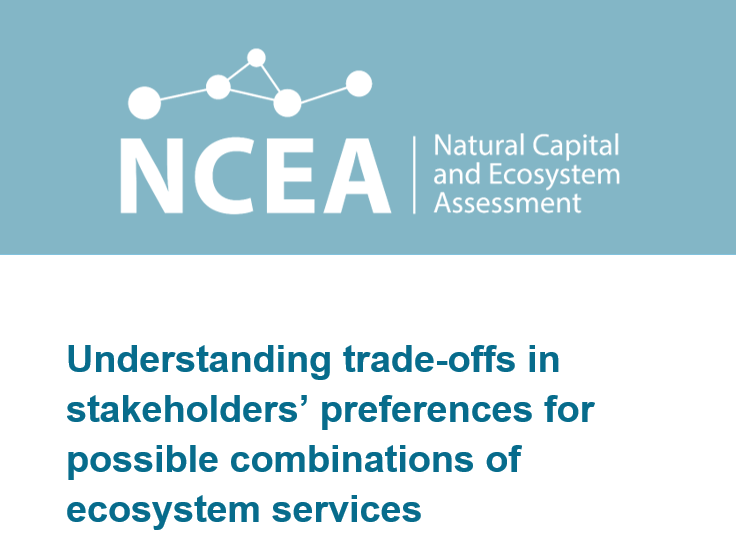
Past projects
GROW Colombia
BGCRF Growing Research Capability award: Preserving, restoring and managing Colombian Biodiversity through Responsible Innovation (GROW-Colombia)
The GROW Columbia Project Report 1 was published in January 2020, entitled Socio-Economics of Biodiversity Programme.
Contacts: Silvia Ferrini, Kerry Turner and Corrado Di Maria.
See the links below to learn more:
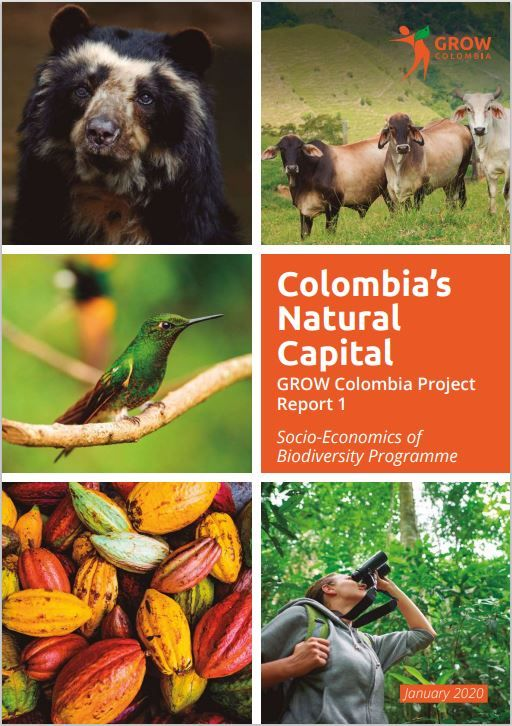
Colombia Bioeconomy
Colombia, one of the world’s 17 megadiverse countries, holds an invaluable opportunity to build a sustainable bioeconomy based on its rich biodiversity. The bioeconomy cluster brings together academic researchers, industry, and government partners from Colombia and the UK to co-develop bioeconomic strategies (Phase 1) and pilot initiatives (Phase 2) in the agri-food and scientific ecotourism sectors across four priority regions.
Building on major UKRI GCRF and Newton-Fund investments and the Colombian STI agenda, the cluster delivers regional workshops, capacity assessments, and proposes value chain transformations that secure environmental, social, and economic benefits. This integrated, multidisciplinary approach strengthens multi-sectoral partnerships, addresses sustainability challenges, contributes to the SDGs, and builds local capacity for equitable, biodiversity-based growth in Colombia and similar Latin American contexts.
Read the project report here
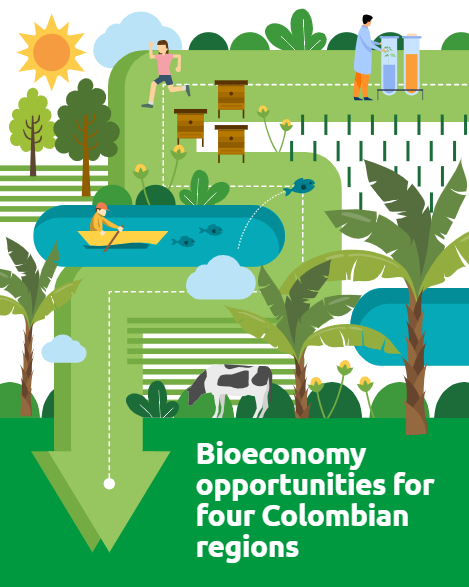
Scottish Marine and Coastal Areas Choice Experiment
This project was carried out to improve understanding of the economic value people place on key environmental and management characteristics of marine and coastal areas in Scotland.
Read the report here
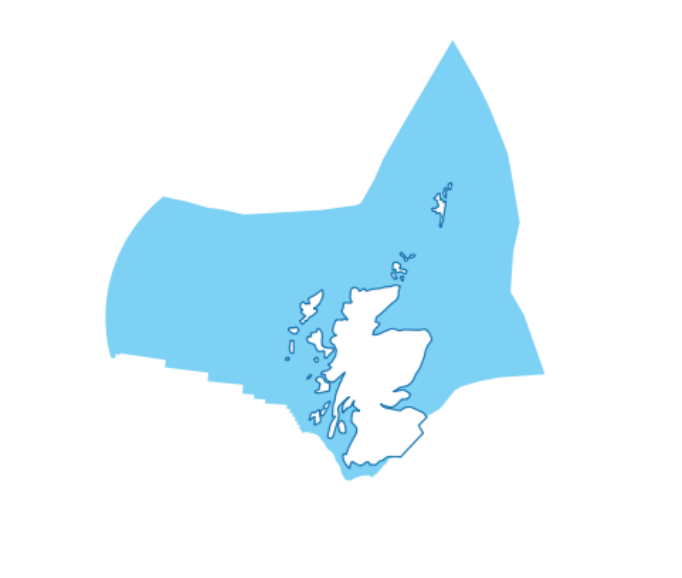
Preferences for Mangroves Restoration in the Colombian Caribbean
As part of her PhD thesis, researcher Keila Guillen lead this activity looking to analyse preferences for mangroves restoration projects and land use changes in the Colombian Caribbean, specifically, Cienaga Grande de Santa Marta (CGSM), through a choice experiment survey. This area is considered the largest coastal lagoon in Colombia, as well as one of the most productive coastal ecosystems in the neo-tropics. Given the important role that mangrove ecosystems play in the mitigation and adaptation of climate change, and the current reforestation initiatives from the Colombian government, this research will support management strategies and restoration initiatives for mangroves in Colombia.
Contact: Keila Guillen Onate, Silvia Ferrini and Corrado Di Maria
Time frame: 2021-2023
Funder: University of East Anglia and Marine and Coastal Research Institute of Colombia (INVEMAR).
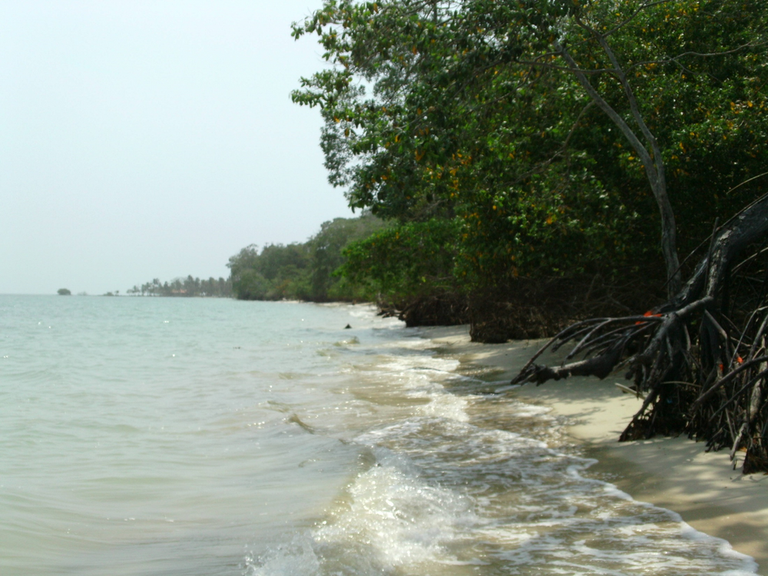
Addressing Valuation of Energy and Nature Together
Professor Andrew Lovett led the £2M ADVENT project, Addressing Valuation of Energy and Nature Together, to explore future UK low-carbon energy pathways and quantify what they would mean for natural capital and ecosystem services. The project applies economic valuation to estimate in money terms the value of the ecosystem service changes associated with different future energy pathways.
Future energy pathways
The future energy pathways include the kind of steps the UK will need to take to meet its energy policy goals. These include maintaining energy security, keeping energy affordable and cutting greenhouse gas emissions by 80% by 2050. The project will give policymakers the tools they need to analyse different energy futures in a way that brings energy and environmental considerations together into a single framework.
Researchers from the University of Exeter, University of Aberdeen, University College London, University of Leeds, Plymouth Marine Laboratory and University of Southampton are also involved with the UEA team.
Contact: Andrew Lovett, Kerry Turner
Time frame: 2015 - 2020
Funder: Natural Environment Research Council
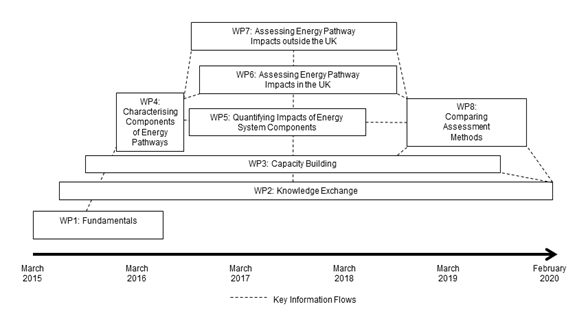
Scottish Ecosystem Services
People managing Scotland's natural environment will have more information on how their decisions could affect farmers, wildlife and greenhouse gas emissions from the 'Economic value of Scottish ecosystem services' project.
The work is part of the OPERAs programme on Ecosystem Science for Policy and Practice. OPERAs is developing ecosystem science for policy and practice to enhance sustainable use of ecosystems and has 27 partners from across the EU.
Economic value of Scottish ecosystem services
The aim of this project is to contribute to the improvement of decision-making relating to the management of Scotland’s natural environment. Read more about this project here.
Short report to the OPERAs Project
Contact: Amii Harwood
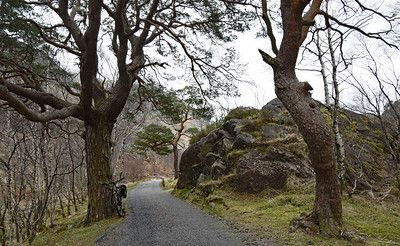
Metaldehyde Reduction
The Anglian Water Slug it Out scheme works with farmers in East Anglia to protect drinking water supplies in the region's main reservoirs. Dr Ruth Welters, Professor Brett Day, Dr Amy Binner, Greg Smith and Professor Brett Day are now at Exeter's LEEP Institute. They have generated and evaluated ideas and made recommendations for the incentivisation components of the scheme.
The Anglian Water website has more information on the scheme:
‘The campaign is aimed at reducing the levels of the slug control pesticide Metaldehyde in our region’s waters before they reach our treatment works. Although harmless to humans, Metaldehyde is very difficult to remove at water treatment works and meeting tough EU targets on it is a real challenge for the region.
As part of the campaign, we are carrying out a trial project around six key reservoirs to incentivise farmers to stop using metaldehyde and use an alternative chemical instead. The farmers will receive payments to cover their costs and for taking part. The reservoirs involved are Alton Water in Suffolk; Ardleigh Reservoir near Colchester; Hollowell Reservoir, Ravensthorpe Reservoir and Pitsford Water in Northamptonshire and Grafham Water in Cambridgeshire.’
The scheme was launched on in June 2015. You can read more about the scheme in the Anglian Water press release: Anglian Water joins forces with farmers to tackle slug pesticides and in the blog from Lu Gilfoyle, Catchment & Coastal Strategy Manager at Anglian Water.
All the target farmers signed up - see the 14 Sept 2015 blog from Richard Reynolds Farmers on board for Slug It Out campaign.
Contact: Ruth Welters
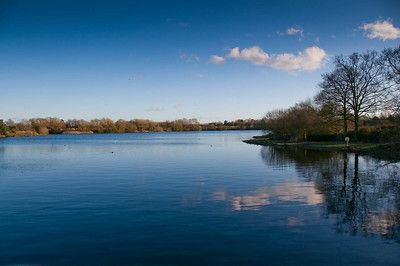
More about our research work
Dr Ruth Welters and Professor Brett Day (now at Exeter LEEP Institute), worked with South West Water as part of their Upstream Thinking initiative and with the Westcountry Rivers Trust to explore the design of a Payment for Ecosystem Services scheme.
The Fowey River Improvement Auction was carried out in Summer 2012 and the final report was published in October 2013. The work will be of interest to land managers, water companies and government agencies.
- Watch a film of Professor Brett Day talking about the Fowey Auction
- Download the final report from the Defra website
Designing a payments for ecosystem services auction
The River Fowey is the source of the majority of Cornwall’s drinking water but suffers from sediment, nutrient and pesticide pollution, primarily emanating from farming activities. That pollution is a big problem for the regional water company, South West Water. In order to provide their customers with safe drinking water, the company incurs substantial costs treating water abstracted from the river.
Calculations suggest that the cost to farmers of reducing pollution at source may be significantly less than the costs of cleaning up that pollution at the water treatment works. Accordingly, the River Fowey catchment provides fertile ground for trialing a payment for ecosystems services mechanism. In such a mechanism South West Water would directly pay farmers to make changes to their farm infrastructure and land management practices in ways which improve river water quality. Those payments, it is hoped, would be more than offset by reductions in treatment costs.
Contact: Ruth Welters
Funders
The research was funded by the Department for Environment, Food and Rural Affairs.
With additional support for Dr Ruth Welters from the Natural Environment Research Council Business Internship sche
The project addresses the question: What is the best use of land?
The simplicity of this question is not matched by its answer, which turns out to be surprisingly
complex.
This complexity ultimately derives from the fact that we do not live in a world of either infinite resources or unbounded opportunities; if we did then decisions could be made without consideration of either direct costs, or the opportunity costs of foregone alternatives.
However, in a world of scarce resources and limited opportunities such decisions are very unlikely to be optimal.
Of course the very notion of optimality requires that we have some objective that we are trying to
optimise. Typically this objective would be taken as attempting to use those scarce resources in the
best way possible. But how might we identify the best use for resources?
The project developed The Integrated Model: a programmed system that links a series of modules together to assess both the drivers and consequences of land-use change (for instance, the agricultural production module links changes in drivers, such as government policy, prices, costs, soils, climate, etc., to changes in farm outputs).
This enables decisions to be robust and efficient. By avoiding appraising pre-determined options, we can allow the characteristics and corresponding values of the real world to determine the best use of scarce resources.
Land use
The research linked policy, market forces, spatial variation in the physical environment, and climate change, to land-use. It will allow policy-makers to examine the impact of a variety of changes in land-use policy while accounting for the ongoing effects of the other drivers listed above. The analysis linked changes in land-use to their impacts upon:
- Food production and its value
- Farm income
- Water quality
- Multi-purpose woodland
- Greenhouse gas balance
- Recreation
- Habitat and biodiversity
The research aimed to provide the UK policy community with a sophisticated and policy-relevant analysis concerning the diversity of effects arising from land-use change.
Forestry Case Study
The case study examines the potential for establishing new forests in England, Scotland and Wales.
This analysis was prompted by government announcements of the intention to expand forestry in all three countries. It assesses land use at a maximum 2 km resolution for the entirety of Great Britain during the period 2014 to 2063.
It considers the impact of any land use change on all of the various systems: agriculture, timber, water
quality, greenhouse gases, recreation and biodiversity.
Key outputs of this analysis include three scenarios:
Investigation of a ‘Business As Usual’ baseline in which no new afforestation policies are implemented. This assessment provides a counterfactual for the other policy change analyses. Furthermore, it reveals the impact of forecast climate change on all the aforementioned systems during the appraisal period.
Investigation of a ‘Market Value’ driven planting policy in which TIM is employed to consider all feasible locations for afforestation, selecting those which maximise the net value of market-priced agricultural and forestry outputs alone, while ignoring potential societal benefits. This simulates the consequences of announcing a general, untargeted planting policy and results in forestry being confined to remote upland areas of marginal agricultural value.
Such locations are far from human populations, which limits the recreational values new forests might generate. Planting under this scheme also occurs on organic soils, which become degraded and emit large volumes of greenhouse gases. This approach to decision making ends with negative overall value to society. Hence, it is not only poor value for money for the taxpayer, but actually results in net losses for society.
Investigation of a targeted ‘Social Value’ driven planting policy in which TIM selects planting locations that take into account the full sweep of benefits and impacts generated by afforestation.
The targeting process accounts for both market-priced goods (including timber and the costs of displaced agriculture) and those non-market goods for which we can estimate robust economic values (e.g. greenhouse gas emissions and storage, and recreation).
This results in woodlands being located away from vulnerable organic soils and close to areas that yield higher recreational values. Analysis of the impacts on non-market goods which could not be given robust economic values (e.g. biodiversity and water quality) shows that water quality and woodland bird species richness are also enhanced when the value of all goods and services are considered in choosing planting locations.
Outputs
Read the Work Package Report 3: Economic value of ecosystem services on the UK NEA website
Contact: Silvia Ferrini
The Social, Economic and Environmental Research project into Multi-Objective Land Use Decision Making (SEER), sought to fundamentally improve option analysis and policy formation with respect to any area of decision making linked to the natural environment.
What does the work cover?
The SEER model addresses drivers of land use and the wider impacts of land use changes.
Drivers of land use include market, policy and environmental drivers and the impacts include farm income, water quality; carbon balance and greenhouse gas emissions; effects on water and terrestrial ecology and biodiversity and impact on recreation.
The SEER project does not simply study each of these components separately: SEER aims to bring together the various systems into an integrated whole. The integrated model (SEER model) will allow us to see how changes in one system propagate changes through the other systems.
Many of the challenges facing the team in constructing an integrated model have been related to making sure that all the inputs are in a common format so that the component parts are able to function.
The SEER work contributed to the first National Ecosystem Assessment and is continuing to contribute to the on-going work of the UK National Ecosystem Assessment by examining the impacts of land use change upon agriculture, woodlands, the water environment and all of the other systems mentioned above. Its ultimate objective is to provide decision makers with methods for improving and perhaps even optimising the use of land in the UK.
Activities
The SEER project sought to directly address that complexity by looking at the major impacts which occur when land use policy is altered.
By applying advanced analysis techniques to highly detailed datasets comprising spatially detailed information gathered over extended periods, the project examines the multiple effects which occur when land use changes.
Specifically it looked at the effects upon:
- Food production
- Farm incomes
- Greenhouse gases
- Water pollution
- Habitat and ecological effects
- Biodiversity
- Outdoor recreation
Contact: Sivlia Ferrini
Funder: Economic and Social Research Council
The Nexus Network brings together researchers, policy makers, business leaders and civil society to develop collaborative projects and improve decision making on food, energy, water and the environment.
The Nexus Network is led by the University of Sussex, in partnership with the University of East Anglia, University of Exeter, University of Sheffield and the Cambridge Institute for Sustainability Leadership.
Contact: Dr Ruth Welters - who is the Nexus Network Communications and Impact Manager.
Funder: Economic and Social Research Council
This project explored water company interests in the payments for ecosystem services approach for improved water quality.
Following from the success of the auction for water pollution reduction in the River Fowey with South West Water, the aim of the project was to establish research collaborations and to implement the payments for ecosystem services approach with water companies across the UK.
The project drew on existing links with UK water companies (e.g. Anglia Water, United Utilities and Severn Trent) to explore with companies their approach to water quality improvement (as encouraged in Ofwat Price Review 14) and understand their needs for research and evidence and to highlight the benefits of PES schemes.
For companies with an interest in implementing a similar scheme to the SWW Fowey auction, the University would work to provide the expertise required to design and implement such schemes, tailored to the requirements of the area.
In addition to strengthening links between NERC research and the business community the project could have significant economic and environmental impact leading to savings on water treatment costs for the companies and their customers and improved river water quality across the UK.
Contact: Ruth Welters
Funder: Natural Environment Research Council
The ARCH (Architecture and roadmap to manage multiple pressures on lagoons) project is working with policymakers, local authorities and researchers to manage the challenges facing lagoons and estuarine coastal areas.
The consortium selected 10 lagoons and estuaries distributed across Europe as subjects for case study analysis.
Located between land and sea, lagoons and estuaries mark the transition from freshwater to seawater. These dynamic and productive environments are increasingly under threat from urbanisation, industry, agriculture and recreational use. They also face the growing impacts of climate change.
Outcomes
Project partners used workshops for each lagoon site to develop a decision-making framework for managing current and future challenges. This was achieved by examining the social, economic and ecological states of the lagoon and linking them to a spatial planning methodology.
The framework was used to draw up a state-of-the-lagoon report for each of the 10 case study sites, taking a step towards individual management plans by identifying multiple and combined problems. During the process, policymakers, scientists and managers were involved and invited to select the relevant solutions.
Other outcomes for the ARCH initiative include roadmaps for implementing solutions, which will involve all the local actors. In addition, a management guide for coastal managers and policymakers as well as a European lagoon management handbook will be produced.
Ultimately, the project's findings will be used to create applicable solutions to protect lagoon ecosystems and preserve Europe's natural heritage.
Contact: Kerry Turner
Funder: ARCH was funded under EU framework 7 Project reference: 282748
The marine environment currently is able to take up around half of all the carbon dioxide emitted by human activity from the atmosphere.
The concept of Blue Carbon - carbon storage in marine habitats - has previously been associated with with coastal ecosystems such as salt marsh and sea grass.
This project investigates Blue carbon across the North West European shelf ecosystems, from storage in marine sediments to export to the deep ocean.
The project connects biogeochemists with environmental economists to redefine blue carbon ecosystem services and conduct a valuation and accounting of the UK's Blue Carbon sink.
The possibility of applying carbon trading principles to these services are also being investigated.
In the first phase of the work, a conceptual framework for valuing whole-shelf blue carbon storage has been developed, together with an initial estimate of the key stores of carbon in the system.
Timescale: 2014-2018
Partners: UEA, Cefas, Carbon Trust, National Oceanography Centre, University of Essex, Met Office.
Funder: NERC and Defra as part of the Shelf Sea Biogeochemistry programme
The Marine Knowledge Exchange Network (MKEN) is an established and rapidly growing network of cross-sector marine stakeholders with mutually beneficial aims to:
- increase capacity in stakeholder relevant marine and coastal research
- ensure marine and coastal research is delivering collaborative impact and application
- help realise the social, economic and environmental potential of our seas and oceans
M-KEN is based within the internationally renowned School of Environmental Sciences at the University of East Anglia (UEA), and is run in partnership with the Centre of Environment, Fisheries and Aquaculture Science (Cefas).
Get involved
Through the Marine Knowledge Exchange Network you can connect with the large network of expert marine scientists working in these institutions, and their globally connected networks. If your business or institution has a specific problem to address or an idea to realise, we can put you in touch with experts in the relevant field, and help facilitate collaborative research, undertake specific research to meet your requirements, mutually develop research funding proposals to help you access UK government research or EU funds, or offer you bespoke consultancy services.
The ‘Mneniopis Ecology, Modelling and Observation’ project investigates the invasive American comb jelly Mnemiopsis leidyi in the North Sea.
The project seeks a better understanding of the identification, biology and physiology of the comb jelly, attendance, behaviour and impact monitoring in the North Sea and the development of models to assess the ecological and economic impact of M. leidyi in the 2 Seas region.
The American comb jelly comes from the Atlantic Ocean near the North American coast and is presumably transferred to other regions by ballast water from ships.
The invasiveness of M. Leidyi in the Black and Caspian Sea in the 80s led to a major change in the marine ecosystem and economic losses due to a decline in fish and shellfish stocks.
In 2006 this species was detected in different regions of the 2 Seas area. The spread of M. Leidyi in this area is a major concern because of the presence of important spawning and nursery areas and migration routes for many commercial fish and shellfish.
Activities
- Development of standard procedures for identification, monitoring and modeling of potential habitat and population dynamics of M. leidyi.
- Study of the physiology, eating behaviour and potential predators of the species through experiments and mathematical models.
- Evaluation of the potential environmental and socio-economic costs of the impact of the species by an ecosystem-based approach.
The ultimate goal is to inform, with the support of the European Union, stakeholders and the general public about the potential risk of M. leidyi on the marine ecosystem and professional activities in the 2 Seas region and to identify possible measures to bring solace to counter this threat.
Partners
The project is implemented through the partnership between research institutes – ILVO, IFREMER, ULCO-LOG, CEFAS and Deltares – and led by ILVO.
The Interreg IVa MEMO-2 Seas Programme is a unique opportunity to improve and standardize the monitoring of the various partners in this region. This crossborder cooperation will ensure an exchange of expertise on taxonomy (species determination), identification, databases, data analysis and modeling between renowned marine institutes.
Funder: The project was funded by the EU Interreg IVa MEMO-2 Seas Programme. Interreg 2 Seas 2014-2020 is an EU Programme covering England, France, the Netherlands and Belgium (Flanders).
The Broads are Britain's largest protected wetland and the third largest inland waterway. With national park status and as home to a quarter of the UK's rarest species, the Broads needs careful management to protect it for future generations.
Broadland Catchment Partnership works together for healthier water and wetlands in the wider area.
Contact: Kerry Turner
Research carried out as part of the National Ecosystem Assessment, Follow-On phase on Coastal and marine ecosystem services has promoted the Balance Sheet approach as a pragmatic format for collating, interrogating and presenting evidence.
It is both a process and a tool which addresses the complexity of real world decision-making and trade-offs. It captures economic, ecological and social/deliberative perspectives in trade-off assessments.
Coasts
Coastal zones in the UK include some of our most diverse habitats such as salt marshes and seaweed beds, beaches and sand dunes, estuaries and lagoons. These support hundreds of coastal specialist plants and animals. These habitats and the encompassing ecosystems provide a range of ecosystem services of significant benefit (value) to the economy and society.
A number of these services can and have been valued in monetary terms although significant gaps remain. But coasts are in a constant state of flux, as environmental change drivers and pressures, both land and marine based, serve to alter the composition and volume (species and habitats) of the coastal service provision.
Large areas of coastal habitat have been lost or damaged in recent decades due to coastal urban/industrial and tourism development, coastal protection such as cliff stabilisation and sea defence works and changes in agricultural practices.
There is a strong precautionary case for action to be taken despite the uncertainties that exist, and that flexibility will be a key feature of an adaptive management approach in coastal areas.
Read the summary and full reports, published June 2014.
For more details see the UK NEA website.
Contact: Kerry Turner
Funders: AHRC, ESRC, NERC, Defra, Welsh Government, Scottish Government, Northern Ireland Environment Agency.
The Knowledge-based Sustainable Management for Europe's Seas (KnowSeas) project is supported by the European Commission under the Environment (including climate change) Theme of the 7th Framework Programme for Research and Technological Development.
The 4 year project started in April 2009, has 32 partners from 15 countries and is coordinated by the Scottish Association for Marine Science.
Contact: Kerry Turner
AQUAMONEY
AQUAMONEY applied a range of techniques to assess in monetary terms the value of potential benefits to be generated by the implementation of the EU Water Framework Directive. These benefits include recreational and non-use values although the primary focus of research in CSERGE will be upon use values such as angling, etc.
Techniques included revealed preference techniques such as those examining the travel and other related costs of undertaking water based recreation. We also considered the potential application of stated preference techniques which attempt to directly elicit values through survey and similar questionnaire based methods.
Timescale: 2006-2009
Funded by: EU Framework VI
ChREAM
ChREAM combined front line natural science with socio-economic research to assess the costs and benefits to the rural community of changing farming and community practices to produce a healthy and sustainable river environment of good amenity value. We examined how the EU Water Framework Directive was likely to affect agricultural activities concerning fertilisers, pesticides and faecal matter and so impact upon incomes within already fragile farming communities.
We also assessed the value and transferability of potential water amenity and recreational benefits arising from such policies and compare this to their likely cost. The work combines physical environment models with economic analyses and surveys of farmer attitudes and behaviour to provide a highly interdisciplinary study of this multifaceted issue.
Timescale: 2005-2009
Funded by: The Rural Economy and Land Use Programme (Relu)
SPICOSA
Spicosa´s overall aim was to develop a self-evolving, holistic research approach and support tools for the assessment of policy options for sustainable management through a balanced consideration of the ecological, social and economic aspects of Coastal Zone Systems (Integrated Coastal Zone Management). Achieving this objective required a restructuring of the science and methodology needed to understand and to quantify the response of the coastal ecosystems, together with their consequences to their social and economic services, when these ecosystems are subjected to changing environmental and anthropogenic conditions from local to global. It also demanded integration through disciplinary and through geographic, political, and social scales.
Timescale: 2007 - 2010
Funded by: European Community under the 6th Framework Programme Priority 1.1
VERHI
VERHI attempted to examine and address the problems associated with economic decision making regarding projects which address risks (particularly environmental risks) which affect children’s health. This work examined a number of fundamental theoretical problems associated with such an undertaking. It also plans to conduct novel experimental and survey work to estimate empirical values for reducing childhood risks.
Timescale: 2006-2009
Funded By: EU 6th Framework Programme
Valuing the Arc
The Eastern Arc Mountains in Tanzania support unique and endangered species, as well as providing direct human welfare benefits locally, nationally and globally. The mountains also provide vital ecosystem services for people: water for farming, hydroelectric power, and almost 3 million domestic water users in Dar es Salaam; fuel, food, medicine, and timber for 2 million nearby villagers; and carbon sequestration for the global population.
Due to population growth and low economic development, less than 30% of the original forest cover now remains. The Valuing the Arc project developed a systematic approach to understand the links between the functioning of the ecosystems of Eastern Arc Mountains and their impact on human welfare at local, regional and global scales. Our spatially explicit approach is designed to create maps to show how benefits and costs of ecosystem conservation fall are distributed across space and people, and shed light on future risks and threats to the remaining forests.
Timescale: 2007-2012.
Funder: Leverhulme Trust
Methods and Tools for Integrated Sustainability Assessment
MATISSE improved the tool kit available for Integrated Sustainability Assessment, notably computer models, and linked them to participatory methods. The improved tool kit supported the European Commission and other actors that seek to apply ISA in a wide range of contexts.
Timescale: 2005-2007
Funded by: European Commission, 6th Framework Programme.
CONSENSUS
The CONSENSUS project aims to model existing real world user-cases and deliver the tools that can, in an easy and comprehensive manner, provide policy makers with optimal choices based on a number of relevant criteria.
Timescale: 2013-2016
Funded by: EU under the 7th Framework Programme
Environmental Policy Integration and Multi-Level Governance
EPIGOV co-ordinated and synthesised existing research on environmental policy integration and multi-level governance and to generate new research questions and initiatives. To obtain feedback and disseminate results, EPIGOV involved policy-makers and non-state stakeholders.
Timescale: 2006-2008
Funded by: EU
Adaptation and Mitigation Strategies: Supporting European Climate Policy
The ADAM project involved 120 researchers in 26 research institutions across Europe and worldwide. ADAM supported the EU in the development of post-2012 global climate policies, the definition of European mitigation policies to reach its 2020 goals, and the emergence of new adaptation policies for Europe with special attention to the role of extreme weather events.
Timescale: 2006-2009
Funded by: European Community's Framework 6 Programme
The first Valuing Nature Network phase ran between 2011 and 2014 to bring together natural scientists and economists, alongside decision-makers in business and policy, with an interest in valuing nature.
This phase I of the Network established the network membership and ran ten interdisciplinary projects.
The current five year, £6.5m Valuing Nature Programme aims to develop the Network to encompass broader research areas and further engage businesses, policymakers and practitioners as research users.
Phase one aims
- Articulate the challenge of valuing the contribution that the stock of natural capital and the flow of ecosystem services make to human well-being, and developing meaningful methods of valuation.
- Identify and develop the underpinning socio-ecological system knowledge that will enable robust monetary and non-monetary valuation to be achieved.
Phase one challenges
Activities were focused on four challenges:
- How can the complexity of socio-ecological systems be incorporated into valuations of biodiversity, ecosystem services and natural resource use?
- How can stock sustainability be incorporated within valuations of biodiversity, ecosystem services and natural resource use?
- How can issues of scale be incorporated within valuations of biodiversity, ecosystem services and natural resource use?
- How do we integrate natural and social science information on values for biodiversity, ecosystem services and natural resources into governance and so improve decision-making and implementation?
CSERGE researchers were involved in several research projects which contributed to addressing these challenges.
Coastal Management
The Coastal Management project set up a network of people from many different research areas to get a better understanding of the importance of the coastal and marine environment to people: e.g. in terms of jobs, health and recreation and amenity.
This project aimed to better define, quantify and value coastal ecosystem services and benefits, and to distinguish between the ‘stock’ position, i.e. the available amount of coastal ecosystem services at a given point in time, and the ‘flow’ position, i.e. the incremental changes in the supply of services over time.
The project proposed a particular interpretation of the ecosystem services stock and flow concepts in order to distinguish between the monetary accounting value of the ecosystem services stock (at a given point in time, and analogous to the economic activity measure Gross Domestic Product GDP); and the economic (marginal) value of incremental changes in flows of ecosystem services over time.
These monetary estimates can serve to emphasise the ‘significance’ of ecosystem services to the economy and human welfare, and may carry further traction with Finance Ministries and their thinking because they are explicitly couched in monetary terms.
The approach adopted has served to re-emphasise how the basic ecosystem processes and structure that underpins the stock and flow of ecosystem services is fundamentally ‘valuable’ in its own right. Thus it is always the case that the total monetary economic value (related to the sum of the flow of ecosystem services) is less than total system value.
This has important implications for policy options appraisal and trade off decision making. It requires, among other things, that economic cost-benefit decision support analysis must be constrained by ‘regulations’ that reflect precautionary thinking if it is suspected that environmental ‘limits’, i.e. thresholds and irreversibilities (changes that cannot be reversed either because it is too costly to do so or technologically not feasible) may be approaching.
Read the final report.
Contact: Kerry Turner
This project proposes to integrate the results obtained from a stated preference choice experiment with results from a Q-Method analysis, to help Anglian Water better understand the subjective viewpoints underlying their customers’ willingness to pay for water quality improvements. As such, this project will deliver a step change in Anglian Water’s understandings of non-market environmental valuation and will provide vital insights on customers’ attitudes, ahead of Anglian Water’s customer engagement leading into the forthcoming Price Review.
This project will also analyse the subjective values for river water quality held by, and motivating, key stakeholders and experts external to Anglian Water. This will enable Anglian Water to improve its understanding of those stakeholders’ priorities and will provide insights into how more effective communication and information dissemination strategies may be developed.
This report summarises research undertaken for Anglian Water Services Ltd. It focuses on the Anglian Water combined water and used water services area and for this geographical region characterises the natural capital assets and then compiles a risk register for them. Spatial data on pressures and assets are then used to classify local authorities in the region and highlight those locations where there is likely to be a need for particularly careful spatial and resource planning in the future.
Two features of the research are distinctive. One is the compilation of a natural capital risk register at a regional rather than national scale and the second is the spatial analysis of pressures and assets to determine where different combinations of conditions exist. To the best of our knowledge, neither of these have been previously attempted in a UK context, but they potentially have wide applicability.
The report is in four main sections. The first presents a characterisation of the Anglian Water combined services area in terms of population, economic activities and natural assets. This is followed by presentation of a regional risk register, with a particular emphasis on highlighting differences to the national assessment conducted by Mace et al. (2015). Insights from the risk register then inform an analysis of geographical variations in pressures and assets within the combined servics area, leading to the creation of a typology of local authorities. The final section summarises the key findings, reflects on the experience gained and identifies some possible future research directions.
